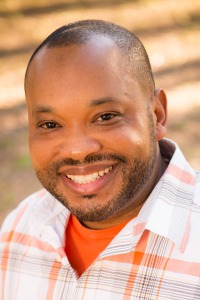 Glen Guyton is chief operating officer for Mennonite Church USA.
Glen Guyton is chief operating officer for Mennonite Church USA.
One of my favorite books from childhood is The Little Red Hen. It is a simple book with a very powerful stewardship message, but a message that may be lost on some of us. The story is about of course a little red chicken, let’s call her Pollito Roja for expediency. Pollito lived on the farm with a few other animals. There was a lazy dog, a sleepy cat, and a noisy duck. Out of the four animals that were part of the farm community, it seems like Pollito was the most motivated to contribute to the operations of the farm.
When planting time came Pollito planted the seeds.
When harvest time came, Pollito harvested the wheat.
When processing time came, Pollito milled the grain into flour.
When baking time came, again, Pollito baked the bread that originally came from her planted seeds.
During each step in the process, the dog, the cat, and the duck decided they would divest from the overall process. The book does not say why they decided to divest from the more unpopular and strenuous aspects of the bread making process, but when eating time came, the dog, the cat, and the duck were all lined up with butter knives and a crock full of apple better, hoping to get slice of that hot, homemade, whole grain goodness.
Today many groups are calling for the divestment in this enterprise or that enterprise. Issues of human rights, social justice, creation care, and other reasons are often cited.
Ironically, these calls often come from people of privilege who, while protesting parts of the process, still want to partake of the benefits of the finished product.
Instead of divesting maybe we should organize and invest in people and processes that align with our beliefs. Do we try to bend the ethical will of big oil or would our time and energy be better spent finding alternative sources of energy or even alternative ways to get to work. Are we too comfortable trying to change current institutions rather than creating our own? Do we have the energy to come together for the common good to bring about long-term change, even if it means self-sacrifice?
Maybe we have to go without bread ourselves to bring about the change we so hope occurs.
Stewardship is about managing our time, talents, and resources. Instead of organizing to withhold, let’s organize to strengthen and support what we value and believe in.

